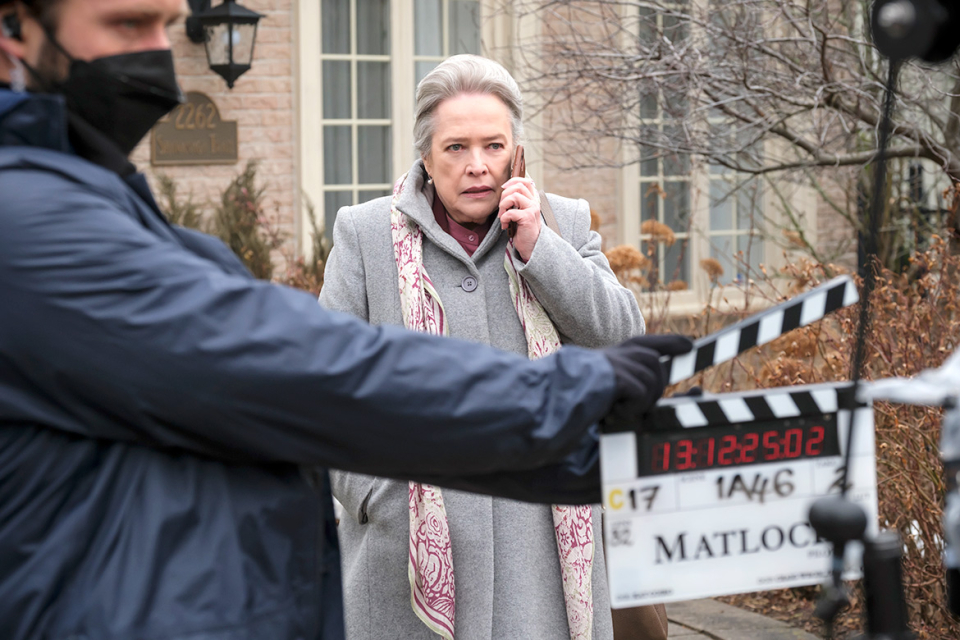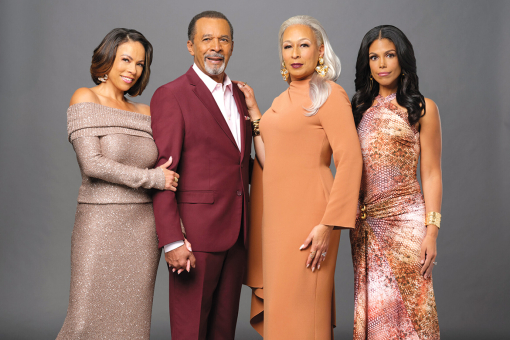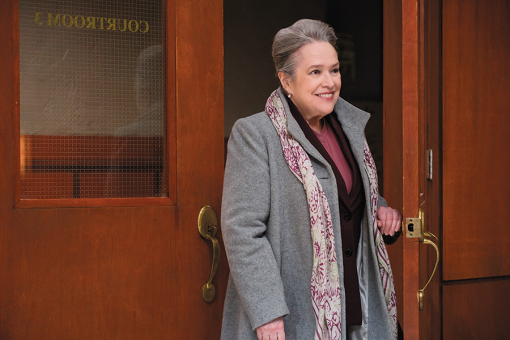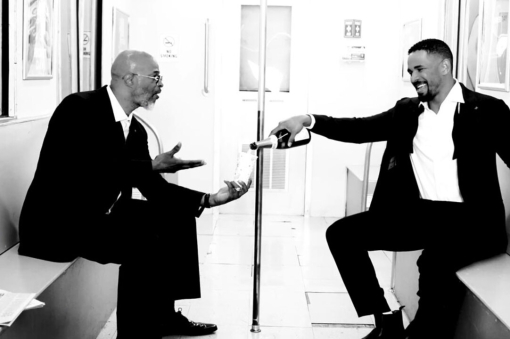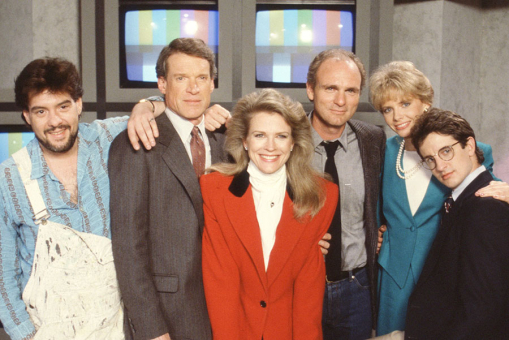The only thing Matlock casting director Michelle Wade Byrd enjoys more than the show she works on are the talented people she works on it with.
With nearly 20 years of experience at veteran casting director Mary Vernieu’s company, Betty Mae, Inc., working on such shows as Apple TV+’s Pachinko and Hulu’s Interior Chinatown, Byrd found herself in the fortunate position to lend her skillset to the hit CBS reboot of the classic legal drama starring Oscar winner Kathy Bates in the titular role (but with a twist). In fact, Byrd recalls how Bates landed at the top of the network’s list to be the show’s lead.
"The role of Matlock was open when we started," Byrd tells the Television Academy in an exclusive interview. "[CBS exec] Erin Weintraub told us [the network] was going to take a swing at Kathy Bates, and that was one of those pipe dreams."
After a Zoom with Bates that convinced the Misery star to headline the series, Byrd and her team set out to fill the ensemble cast with actors that audiences could invest in for what the network hopes to be a long haul of several seasons. The audience’s relationship with a dynamic and inclusive cast like Matlock’s, along with finding performers that can service that relationship week-to-week, is often a key factor in the casting calculus for Byrd and her colleagues.
Below, Byrd shares with the Television Academy how special it was to watch Bates do chemistry reads and some challenges (and benefits) to self-taped or Zoom auditions.
Television Academy: How did you get involved working on Matlock?
Michelle Wade Byrd: So, we were brought on originally by Erin Weintraub, the studio exec at CBS. We had done a show with her about Shaka Zulu [Showtime’s King Shaka], and she got us the interview with Matlock’s creator and showrunner, Jennie Snyder Urman. Erin made the introduction because she had worked with her before and had such a great experience.
So was Kathy Bates attached by the time you came onboard?
The role of Matlock was open when we started. Sometimes, though, shows will come to us with certain talent already attached. Sometimes they come to us with a completely blank slate.
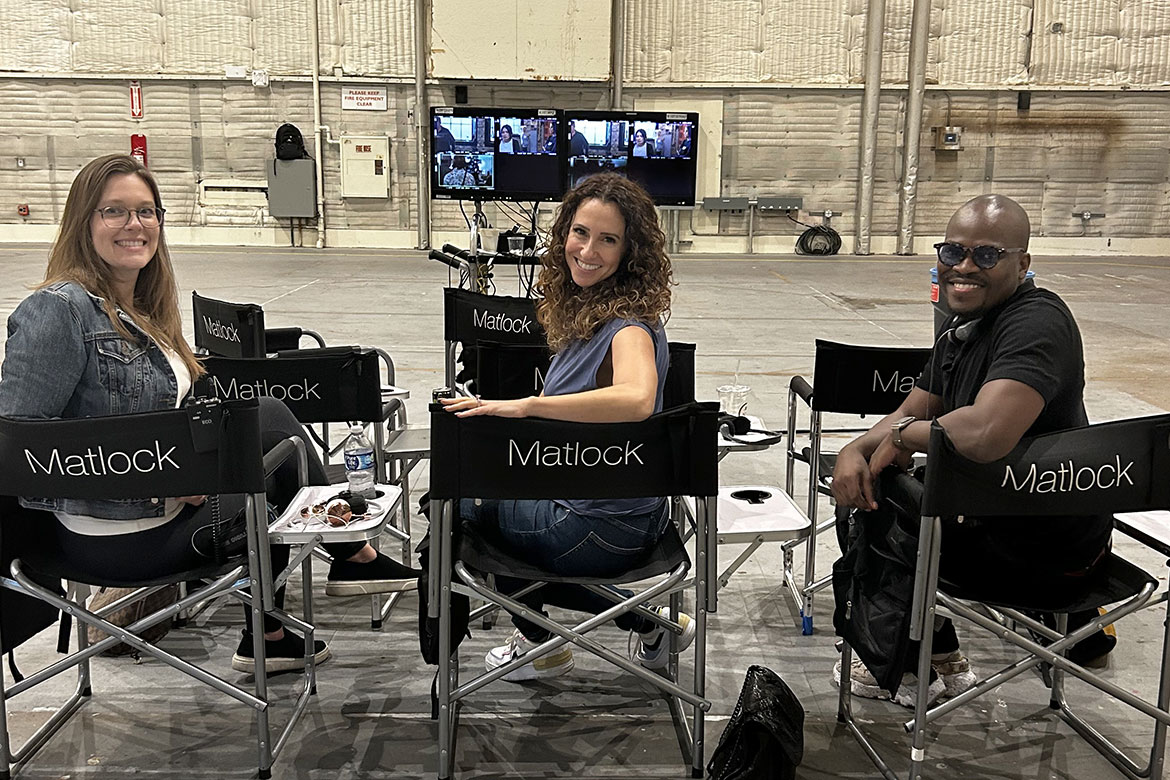 Casting director Michelle Wade Byrd with her team: Samantha Rood (left) and Wanda Ndlovu (right)
Casting director Michelle Wade Byrd with her team: Samantha Rood (left) and Wanda Ndlovu (right)
What was the process from then on, exploring who should play the titular role, and how did you land on Bates?
I remember making a list of ladies for Matlock and discussing it with Erin at CBS. She told us [the network] was going to take a swing at Kathy Bates, and that was one of those pipe dreams. If you could have anyone at the top of the call sheet, I mean, that’s who you want. We were super excited that she wanted to do it.
So what’s it like to get the call that she’s onboard?
Oh, we screamed. [Laughs] Jennie and some of the other producers, they did a Zoom with Kathy to talk to her [about the role]. I remember talking to Jennie afterward, and everyone was just thrilled to have her — and Kathy was just as excited.
When you have such an accomplished and well-known star onboard like that, how does that shape or influence the casting process? I assume Kathy has a say in who gets cast.
She does. And if someone like Kathy is involved, you obviously want her input. She’s such a veteran in this industry, and it's her show. You want her feedback on who she responds to, who she vibes with. And we did have chemistry reads with Kathy and [actors considered for] the Olympia character, played by Skye P. Marshall, who is fantastic.
We also did chemistry reads with actors for the role of Alfie (Aaron D. Harris), too, because those two roles were so important in terms of chemistry. She was willing to come in and do those, which meant so much to all the actors.
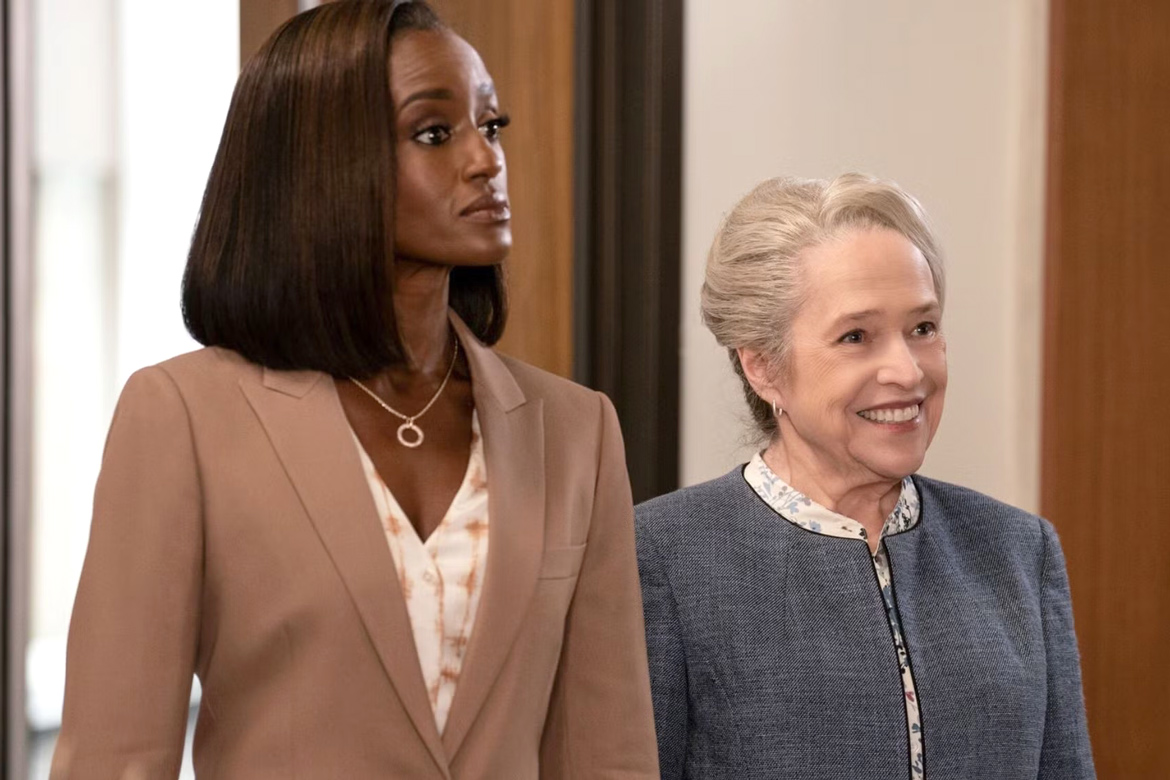 Skye P. Marshall and Bates in a scene from Matlock
Skye P. Marshall and Bates in a scene from Matlock
Other casting directors I have spoken with have said that, back during the time of a more traditional pilot season, chemistry reads were rare because everyone was casting 100 pilots at the same time. In your experience, how common are chemistry reads given the current state of TV?
We always will encourage them if it's possible, just because the chemistry is so important to find among the cast — especially in a pilot, when you have so little time to establish [it]. Also, knowing that these [character] relationships might go on for many seasons, it’s so important to see the chemistry early on. During the pandemic, a lot of the chemistry reads were over Zoom.
It must be extra challenging to get a vibe check on chemistry over a computer screen.
It can be, at times, but you really can still feel the chemistry between them on Zoom — even though you’re not in the same room together.
Usually, what we'll try to do in the first round [of casting], if they can't get in the room or we can't do a Zoom session and it's a self-tape, hopefully there will be a next round of callbacks. And in that round, we offer either in-person or over Zoom or some kind of chemistry read. If it's cast off tape, it's usually like a costar or a guest star. Sometimes that does happen. But we really try to make the next step be some in-person or call-back read. We offered in-person readings for every single role on Matlock. I will also say, though, that I get it that a lot of actors have become really comfortable with self-tapes. So I respect and totally understand that.
It’s also important, too, to go in and meet those in the casting office — even if you're not right for that specific role, they'll keep you in mind for something else. I can't stress enough how, if you have the opportunity to go back in the room, take it.
For in-person auditions or reads, I’m sure actors coming in to read with an Academy Award-winning person like Bates may be more anxious or nervous than usual. So how do you help mitigate that?
If you come in-person, we usually have a little conversation before. I can talk to [actors] about their weekend, for example, and try and get a sense of them as a person and their personality. Because I don’t really know anything about who they are as a person through a self-tape if it’s someone I’ve never met before. It’s helpful to have a little bit of information about who I'm sending to go on set with my director.
What scenes did you use for those chemistry reads on Matlock? Were scenes written just for the auditions that didn’t appear in the pilot or show?
If I remember correctly, I think Kathy came in and read with five or six ladies for Olympia, and we did maybe two or three scenes showing different energies and dynamics. One was friendlier, one was a little more professional and one was maybe more skeptical. You try to show different facets or sides of the character so you can see how an actor would bring this particular situation to life, how the actors and characters interact and relate.
And I do have to tell you — one of the anecdotes I like to tell — they say never meet your heroes, right? Well, Kathy was just one of those people that, I mean, I idolized and looked up to and loved for years. She's one of my favorite actresses. And I was so nervous, but she exceeded my expectations more than anything I could have ever hoped for. She's the most gracious, caring, humble, kind person. Not only to us in the casting office but also to the other actresses.
These actresses coming in [for the role of Olympia] and reading opposite Kathy Bates is no small feat. That's really nerve wracking. So we try to create as calm an environment as we can, and Kathy — she put everyone at ease. She was so warm and really generous in the room. If they would stumble, she was like, "No problem. Let's do it again." Her energy was just everything you'd want it to be. In doing that, these actors really felt so comfortable and so seen. She was so willing to just be there for them and help them through it. And that says so much about her and her dynamic, and what kind of an actress she is. It was so beautiful. She had just come off of being sick. She had tissues with her, and she wasn’t feeling 100% yet. But she still came in and was this warm, loving and generous actor and producer in the scene. That says so much about her and who she is. It was just so amazing. And, again, very rare that someone like that — of that caliber — is so open with that experience of reading with actors. She was more than willing to — she stayed for hours.
So test driving the gamut of emotional states and character dynamics is clearly key to casting. You’re kind of using these reads as a crystal ball. You’re using this one session to game out how these actors will portray the characters across the lifespan of the series.
Absolutely. When we pull scenes from the pilot [for auditions], or sometimes, if there's not something in the pilot that reflects the certain emotions, we'll ask the writers if there's another scene they can give us — maybe something in the future or from another episode. So we will try to pick different scenes to show different emotions, because we have such a limited script to go off for series regulars that could potentially go on to play these characters for years and years.
So was there a show bible shared with you and your team? Or did you just have the pilot to reference?
Any kind of information the writers or the showrunners and producers can give us just to build the character is obviously very helpful and always welcome. For Matlock, as I recall, it was just the pilot. So we really just had to have deep conversations with the [creative] team to help figure out what else we needed to know for the future, for going forward. With shows like Pachinko, they had the first few episodes written and just an outline to give us, so that we knew a little bit of the trajectory of where those characters went. With casting, whether it’s Matlock or another show, our goal is to help the showrunners, writers, and producers make sure what they have envisioned for the show is achieved as best we can, casting-wise.
This interview has been edited for length and clarity.
Matlock airs Thursday nights on CBS.
[Editor's note: Byrd is the daughter of Marc Wade, the Television's Academy Executive Producer, Digital.]

